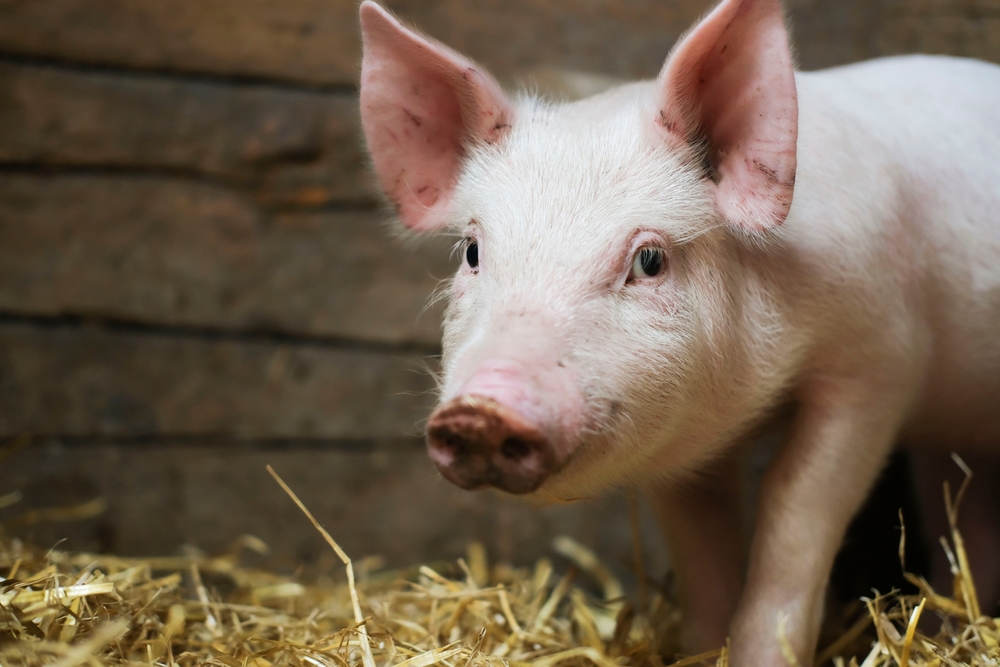
The eating of pork is explicitly outlined in the Holy Quran, the holy book of Islam. In the first Suratul Baqara verse, Allah emphasizes the prohibition of consuming pork and its products according to Islamic law:
He has only forbidden you to eat carrion, blood, swine, and what is slaughtered in the name of any other than Allah. But if someone is compelled by necessity—neither driven by desire nor exceeding immediate need—they will not be sinful. Surely Allah is All-Forgiving, Most Merciful. – Surah Al-Baqarah (2:173)
In this verse, swine refers to any porcine material. However, it is worth noting that Allah gives an exemption to Muslims to eat pigs in cases of dire necessity, for example, if you have severe hunger with no other food sources.
Again, we can find mention of Islam with a similar prohibition of the consumption of swine flesh in the Suratul Al Maida verse:
Forbidden to you are carrion, blood, and swine; what is slaughtered in the name of any other than Allah; what is killed by strangling, beating, a fall, or by being gored to death; what is partly eaten by a predator unless you slaughter it; and what is sacrificed on altars. – Surah Al-Mai’dah (5:3)
In the Torah, the holy scripture of the Jewish faith, pork is categorized as “unclean” and is prohibited for consumption by followers of Judaism.
The prohibition of pork to God’s people was first mentioned in Leviticus (Chapter 11:7), where God declares:
“… and the swine, though it divides the hoof, having cloven hooves, yet does not chew the cud, is unclean to you.”
Likewise in the Book of Isaiah Chapter 66 Verse 17 God says:
“Those who consecrate and purify themselves to go into the gardens, following one who is among those who eat the flesh of pigs, rats, and other unclean things—will meet their end together with the one they follow.”
Beyond religious and cultural considerations, scientific and medical research highlights potential health risks associated with pork consumption:
Pork is high in saturated fats, which can elevate cholesterol levels in the body.
Consuming 50 grams of pork daily can increase the risk of coronary heart disease by 9%.
Higher fat content in pork compared to other meats can contribute to obesity, heart disease, and cholesterol imbalances.
Pork contains high levels of purines, which produce uric acid during digestion.
Elevated uric acid can lead to gout, especially when consuming other pig organs like the liver and kidneys.
Pigs have few functional sweat glands, resulting in higher concentrations of harmful toxins in their bodies, which can affect the quality of pork.
Pigs are often found in less hygienic conditions and may consume their excrement.
They are prone to bacterial diseases like pork tapeworm (Taenia solium) and Trichuriasis and have been linked to swine flu outbreaks.
Pork can carry parasites like Trichinosis, which can be transmitted to humans.
A 2021 study by H Zhang found that consuming an additional 25 grams of processed meat daily, including bacon, is linked to higher risks of dementia and memory loss.
Processed pork products, such as ham, are classified as carcinogenic by the International Agency for Research on Cancer.
Consuming pork is associated with several health risks, including increased chances of chronic diseases and negative impacts on overall well-being. However, to gain a comprehensive understanding of the religious prohibitions and jurisprudence surrounding this issue, you can rely on online courses led by experts, which provide a thorough and efficient way to deepen your knowledge of religious teachings in a short amount of time and through the best methods available.
Enhance your understanding of Islamic law with Al-Dirassa Institute’s immersive online Fiqh courses, which deliver expert-led education and in-depth analysis of religious teachings.
To know More: The Significance of Tafsir in Quran Study
Don’t want to go through the translation anymore?
30 free minutes with your qualified Egyptian teacher.
Discover the experiences of our delighted clients who have thoroughly enjoyed utilizing this standout feature.
Alhamdulillah I‘m very pleased with the arabic and Qur’an lessons I receive from teacher Umm Tasneem and I‘m also content with the al-dirassa administration team who were very quick in answering any questions I had. In a month I progressed a lot and I cannot wait to continue my studies with al-dirassa. May Allah reward everyone at al-dirassa.
Verified review - view original
My Qur’an teacher is fantastic, she teaches me in a loving and kind way where I look forward to the lessons and learn so much. My Arabic teacher is equally as nice and has a lot of patience with me, she has great expertise in the field and I’ve progressed really quickly with her. Thank you Al-dirassa!
Verified review - view original

Al-dirassa Institute offers you a gift to help you begin your journey to being fluent in Arabic and learning the Quran.

Al-dirassa Institute offers you a gift to help you begin your journey to being fluent in Arabic and learning the Quran.